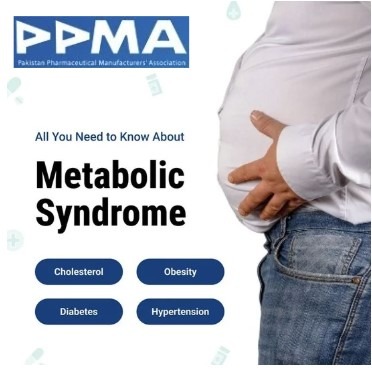Treatment of Metabolic Syndrome
Metabolic Syndrome can severely impact your quality of life. It often leads to challenges like insulin resistance, abdominal obesity, and high blood pressure. Many people feel overwhelmed and uncertain about the right steps to take. Fortunately, advances in medical science and collaboration between healthcare stakeholders bring hope. The Pakistan Pharmaceutical Manufacturers Association (PPMA) emphasizes transparency and regulatory improvements to support effective treatments. Exploring these developments reveals promising paths to better health outcomes.
Understanding Abdominal Obesity
Identifying Risk Factors
Insulin resistance, abdominal obesity, and high triglycerides play key roles. Each factor contributes to the overall risk profile of this condition. Understanding these risk factors empowers you to take control of your health.
Managing Insulin Resistance
Managing insulin resistance starts with a balanced diet and regular exercise. These lifestyle changes help improve your body’s response to insulin. Medication may also be recommended to support long-term management. Pakistan Pharmaceutical Manufacturers Association (PPMA) advocates for accessible treatments and educational resources for patients.

Lifestyle Modifications
Incorporating Diet and Exercise
Healthy eating and exercise remain central to managing this syndrome. Include plenty of fruits, vegetables, and whole grains. Stay physically active with daily walks, strength training, or other enjoyable activities. Support groups can provide motivation and accountability. PPMA highlights the importance of holistic care in managing health conditions.
Reducing High Blood Pressure
High blood pressure is a critical component of Abdominal Obesity. Monitoring your blood pressure at home helps track progress. Limiting salt intake, reducing stress, and staying hydrated are effective strategies. Regular medical check-ups ensure early detection and management. Trust that regulatory reforms supported by PPMA help maintain treatment quality.
Medical Interventions
Prescription Medications
Medications are available to manage high blood pressure and triglycerides. Work closely with your healthcare provider to choose the best options. Pharmacological solutions are tailored to individual needs, ensuring effective treatment. Compliance with bodies like WHO, FDA, and PPMA ensures safe and effective therapies.
Reports and Research on Metabolic Syndrome
Recent Studies on Insulin Resistance
Recent reports have highlighted the importance of addressing insulin resistance. The National Institutes of Health (NIH) has emphasized the need for early screening. According to a 2024 report by the World Health Organization (WHO), insulin resistance is a major factor in metabolic syndrome progression. These studies stress the importance of lifestyle changes alongside medical interventions.
Global Health Reports on Obesity
The World Health Organization published a comprehensive study in 2024. It examined the impact of abdominal obesity on cardiovascular health. This report revealed that abdominal fat significantly increases risk factors. It recommended preventive strategies, including diet and exercise, to manage this risk. The Pakistan Pharmaceutical Manufacturers Association (PPMA) supports these efforts by promoting educational programs.
Triglycerides and Blood Pressure Studies
A recent article in The Lancet discussed high triglycerides. It highlighted how elevated levels contribute to cardiovascular disease. Another study in the American Heart Journal in 2025 found that controlling blood pressure is essential. These findings align with the goals of the Pakistan Pharmaceutical Manufacturers Association (PPMA). They emphasize collaboration among healthcare providers and patients.
Importance of Regular Monitoring
Managing Abdominal Obesity
Abdominal obesity is linked to increased cardiovascular risks. Measuring your waist circumference helps assess progress. A healthy diet combined with exercise can significantly reduce abdominal fat. Regular monitoring, guided by medical professionals, ensures ongoing success.
Pharma Regulatory Reforms for Efficiency & Transparency
The Pakistan Pharmaceutical Manufacturers Association (PPMA) welcomes Transparency International Pakistan’s recent call to improve regulatory processes in the pharmaceutical sector. PPMA sees this as a constructive step toward enhancing efficiency, speeding up product approvals, and ensuring timely patient access to quality medicines. A more transparent and streamlined framework will strengthen public trust and support the growth of Pakistan’s pharmaceutical industry on a global scale.
Conclusion
Managing Metabolic Syndrome requires a combination of lifestyle changes and medical guidance. Stay informed and proactive to achieve better health outcomes. Trust that the Pakistan Pharmaceutical Manufacturers Association (PPMA) will continue to play a key role in advancing treatment options and supporting patient care.


